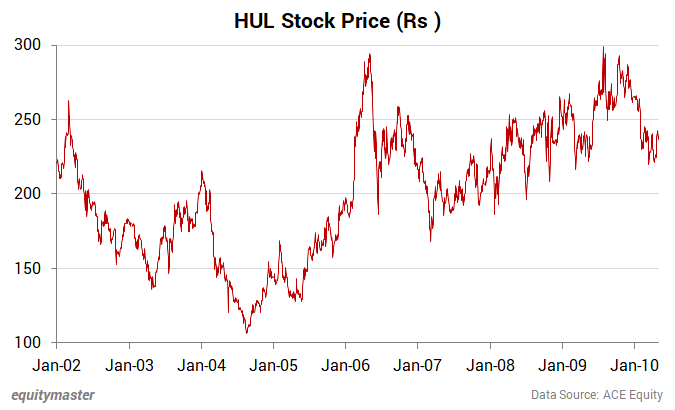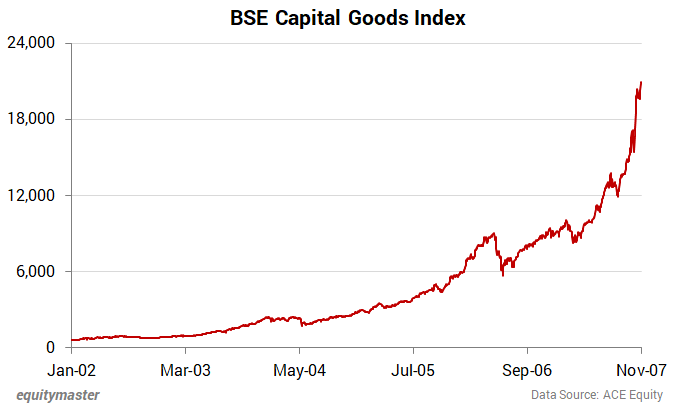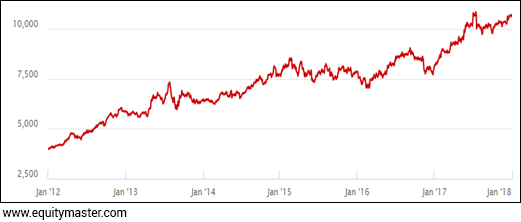- Home
- Views On News
- Mar 8, 2023 - Greed and Fear: Where Does the Indian Market Stand?
Greed and Fear: Where Does the Indian Market Stand? 
Which way will the pendulum swing? Is it Greed or Fear?
Find out as I decode some myths about timing the market and what works and what doesn't.
Hi guys, this is Aditya Vora here...
The narrative these days has shifted from ' Market kya lagta hain' to ' Adani ka kya hoga'?
Looking at the price movements of stocks like Adani Enterprise, its become impossible for anyone to make money in it.
On a lighter note, last week some one asked me how to play trade Adani Stocks.
I told him... You don't trade Adani, Adani trades you...
Isn't that true looking at the volatility in stocks. I mean it has become a news-based stocks.
If you think and try to analyse what is happening in the Adani group stocks, it is purely greed and fear which is playing out.
Based on news, people's views on the Adani group are moving like a pendulum.
So friends, using this analogy, I thought why not extrapolate this greed and fear concept and figure out where we are in the stock market.
After all, isn't everything in life about greed and fear?
Before I jump in to where the markets are and the outlook for 2023 let me briefly tell you a story which talks about why it is easier to sell fear in the world.
There was this very famous author by the name of RL Stine. Now, his genre was primarily scary kids books under the series 'Goosebumps'.
It sold almost 40 crore copies worldwide.
However, very few people knew that before switching to the genre of children's horror fiction, he spent the first two decades of his carrier writing jokes for kids.
The question is , why did he switch after two decades?
Well, in his opinion, scaring people was easier than making them laugh.
The observation was that everyone had a different sense of humour. Some people liked dark comedy while some preferred clean comedy. It's very subjective.
The point is, while everyone has a different sense of humour, we all have the same fears.
Hence, it is easier to target something which is common like greed and fear rather than humour or any other genre which is subjective and may be wary from one person to another.
If you extrapolate this to the stock markets, don't we have to deal with the tale of greed and fear all the time?
The point is, how do we benefit from greed and fear? After all, we are in the business of making money. It is our job to make the most of market emotions.
So how do we do that?
While the answer is simple, I want to go one step further and highlight two things here.
- Both greed and fear in the stock markets are always overdone.
- Making money out of greed and fear involves timing the market.
A lot of people talk about buy and hold forever...
Well, in my opinion, buy and hold forever seldom works.
In fact, timing the market is equally important as time in the market.
Even in non-cyclical sectors like FMCG which are considered to be safe, the concept of buy and hold forever also fails.
Let me give you an example.
Consider Hindustan Unilever Ltd (HUL).
I am sure the initial thoughts which come to your mind will be 'safe stock' or 'quality company' or 'stable returns'.
Let me share some interesting facts about HUL.
From 2002 to 2010, HUL's stock price went nowhere. The stock went into an 8-year coma. The returns after dividends could barely even make up for inflation.
A Journey of No Returns in a So Called Stock

The reason why HUL didn't perform was the 'greed' factor at play during the period.
The period of 2002 to 2008 was a golden period for the economy with massive tailwinds for the capital goods sector. Every sector linked to infrastructure and capital goods was booming. In fact the real estate was on a roll.
During such times it is pertinent to focus on the sectors in favour, which were the economy related stocks, and not safe stocks like FMCG.
Had you instead invested in the BSE Capital Goods index in 2002 rather than HUL, you would have made a return of over 3,000% - a whopping 83% CAGR (compound annual growth rate) - over the next six years.
A Cycle of Great Returns

While this was one side of the story which was dominated by greed, the other side favours fear.
Post the financial crisis of 2008, fear was at peak. Hence the FMCG sector became the darling of the market.
Basically, it was a shift from 'Risk on' to 'Risk off'.
The BSE FMCG index gave a steady 15% CAGR over 2012-2018 period, when the capital goods sector had stalled.
BSE FMCG Index (2012-2018)

Basically, risk off is a play on fear. It results in money going to sectors like FMCG from capital goods and infrastructure.
I started the article with two basic ingredients required to make money in the stock market - greed and fear.
Timing them will help us make a lot of money. So let me answer the million dollar question...
Where are we now in the pendulum of Greed and Fear?
In my humble opinion, 2023 is likely to be more of fear rather than greed.
Three months in to 2023, the benchmark Nifty is down to 17,400 levels. The feeling among midcap and smallcap investors is already that of Nifty at 16,000 levels.
Imagine if Nifty fell to 16,000 levels. A mere 7-8% correction is required for that. This depends on factors like the US Fed's interest rate decisions.
The point is not how long the US Fed can keep raising interest rates. I am sure the end of rate hikes is near.
The question is... how long it will let those interest rates stay high before it starts cutting rates?
With sticky inflation in the US and even in India, interest rates are expected to be high.
At such times, equity valuations take a knock as money moves to, and stays in, bonds and FDs.
So, what should investors do in 2023.
Two things in my view.
One is that I personally believe that exposure should be reduced from high beta stocks and moved to safe sectors like IT.
Now you must be wondering, with US recession why would I prefer the IT sector.
It is said that during a downturn and high interest rates, the hiding places in the stock markets are limited.
However, with high interest rates, the Indian rupee is expected to fall against the dollar which will benefit IT stocks.
Most IT stocks have fallen by 30-40% from their peaks in 2022 and offer a good risk reward ratio on the valuations front.
The recession impact in the US is mostly priced in to Indian IT stocks.
Second thing is that there is a trend which we are seeing in the markets from the end of 2022 and is likely to continue going forward.
The darlings of 2020 and 2021 are getting hammered.
Take the example of diagnostic stocks or take the example of chemical companies.
While these are just 2 examples, there is a pattern and similarity of the type of stocks which have been hammered down and still are expensive.
It's the high PE stocks.
Diagnostics stocks, chemical stocks and the new age IPO stocks like Zomato, Nykaa and Paytm types.. All got hammered.
How on earth can B2B chemical companies trade at FMCG valuations or how can companies testing your blood have 100 times multiple.
In 2023 as the pendulum oscillates to fear, these high valuation stocks despite the fact that they have fallen by 50% from the top will be further hammered as they went up by 5 times in less than 2 years.
Net, while IT can be preferred, such high multiple stocks should be avoided at a time when interest rates are high.
Also, with FD rates at 8%, equities are bound to become less attractive atleast for some time going forward.
2023 may not be a great year for the market. But I believe you should still make the best use of the conditions before us.
Look for good timing opportunities in select stocks on your watchlist.
Thank you, friends, for watching the video.

Aditya Vora (Research Analyst) Hidden Treasure has 7 years of experience in the markets as an equity research analyst. He is a Chartered Accountant by qualification and worked with some of the big names on Dalal Street like Motilal Oswal, CRISIL, and IDFC securities. He follows a rigorous process of financially screening stocks. At the same time, Aditya believes an investor's edge lies in capturing qualitative factors. His forte is bottom up stock picking. However, he is also a firm believer in the importance of market cycles. Especially identifying emerging themes at an early stage.


Equitymaster requests your view! Post a comment on "Greed and Fear: Where Does the Indian Market Stand?". Click here!
Comments are moderated by Equitymaster, in accordance with the Terms of Use, and may not appear
on this article until they have been reviewed and deemed appropriate for posting.
In the meantime, you may want to share this article with your friends!